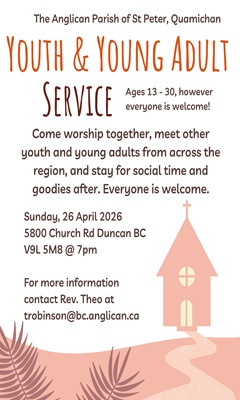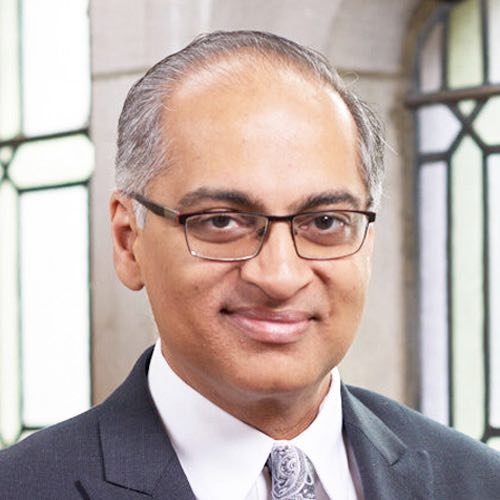A letter from an American theologian to his Canadian church
Dear Canadian friends,
I am guessing that you are as dazed and confused as I am about how American politics could have become so quickly and easily corrupted. Explanations are not easy to come by, and neither are solutions. So much has to go wrong before an entire nation finds itself under authoritarian grip. It does not happen overnight. The rot starts early.
First, there must be a malignancy present in a nation right at its inception. The US’s unwillingness to grapple with its genocidal violence against Indigenous Peoples, the Middle Passage and slavery constitutes the first mutation. With some historical exceptions, such as Reconstruction and the Black Freedom Movement, Americans have indulged in the myth of innocence and even nobility. In so doing, Americans have permitted white supremacy to metastasize uncontrolled. Without radical chemotherapy, this outcome was always inevitable.
Second, add in a media environment in which each of us receives only the information we already want to believe (no disturbing fact need be seen). Then permit a few crucial actors, state and nonstate, to be in control of that media environment (Mr. Musk), and let them pump misinformation to large segments of the population. This trend has accelerated rightwing politics globally. If this emphasis on social media and its pernicious effects seems exaggerated, consider this 2018 finding from researchers at MIT, summarized below in the journal Science:
“Falsehood diffused significantly farther, faster, deeper and more broadly than the truth in all categories of information, and the effects were more pronounced for false political news than for false news about terrorism, natural disasters, science, urban legends or financial information…. It took the truth about six times as long as falsehood to reach 1,500 people.”
But the iron grip of falsehood requires a third more insidious spiritual malformation: a well-oiled cultural program that works to corrode the heart. For decades, talk radio has spewed hatred, cultivated toxic masculinity, persuaded us (men in particular) that vulnerability is weakness and brewed resentment against Black and brown folks, LGBTQ folks and immigrants. It was all but inevitable that Americans would find themselves in the hands of a White Supremacist in Chief.
One hard lesson that Canadians must receive from US political life is that the wounds of the past must not be left unaddressed. Left untreated, they have the power to corrupt Canadian political life as well. As a relative newbie to Canada, I have already heard a certain unfortunate weariness about “our constant talk about Indigenous reconciliation.” American politics offers a terrifying lesson about the risks that come without the long work of deep repair.
No nation, not even one with venerable democratic institutions, is exempt from authoritarianism if its own legacy of supremacy (white supremacy in North America, caste supremacy in India, etc.) is not eliminated, root and branch.
If the road here was long, the way out will be at least as long. Americans will have to fight urgent frontline battles now, but the long war must be fought over the terrain of the human heart. Only a well-tuned and open heart can serve as a reliable moral compass.
Healing the heart is our only hope, in both the US and Canada. This, of course, must be the work of every spiritual community, the long game in these desperate times. The good news is that no power on earth can prevent us from doing this holy work. Starting now.
We Anglicans have our wits about us. We can read the distressing signs of undemocratic times and have no intention of collaborating with naked authoritarianism. That much we know. What we do not know is what action to take. What is the next right step to take, not just as a political intervention, but as an institution rooted and grounded in the way of Jesus?
My siblings, our work in this and every time is to soften the heart. When we let the heart harden and calcify, we lose our way. The mind is easily led astray.
But, now, I want to complicate matters. To be clear, there is no such thing as mind separated from heart. A variety of religious traditions, including the deep past of Christianity, would not have divorced mind from heart. Or, if such a split was sensed, the work of spirituality was to return the mind to the heart. Hence, Eastern Orthodox monastics routinely spoke of “dropping the mind into the heart.” Moreover, there are entire languages, cultures and traditions in which one word is used to refer to both at once; for example, the Chinese use a single word for heart-mind (xin).
If this restored synthesis of mind and heart is the sought-after goal, we must recognize that we have lived since the Enlightenment with a compromised imagination, one in which thinking is opposed to feeling, and mind contrasted with heart. We have learned to prize tough-minded rationality as opposed to tender-hearted sentimentality.
The trouble is an “unfeeling rationality” is always an exercise in self-delusion. Why? Because neuroscientists have come to the conclusion that every part of the brain thinks and feels simultaneously. Thinking is driven and deepened (and corrupted) by passion. Everything hinges on which passions are at work.
Good thinking is driven by a desire for truth and a courageous openness to the real. By contrast, thinking that goes wrong is compromised by egoism, racist passion or sexist impulses. What feels like neutral or clear-minded thinking is often anything but.
These discoveries offer indispensable information for the church. Care of the heart-mind through spiritual discipline has always been part of our core work, even if we have often lost sight of this mission or confined it to monastics. As a church, we must recover these ancient practices of purifying and tuning the heart so that an uncorrupted heart can feel-think truly. This task is now a central calling of our age.
My friends, I have every confidence that we can and must do this urgent work if our political life is to be redeemed from its current degraded state. Joining with other spiritual communities, we must heal the heart if the body politic is to be purified of the spiritual toxins that now compromise our common life.
In transnational spiritual solidarity,
John




